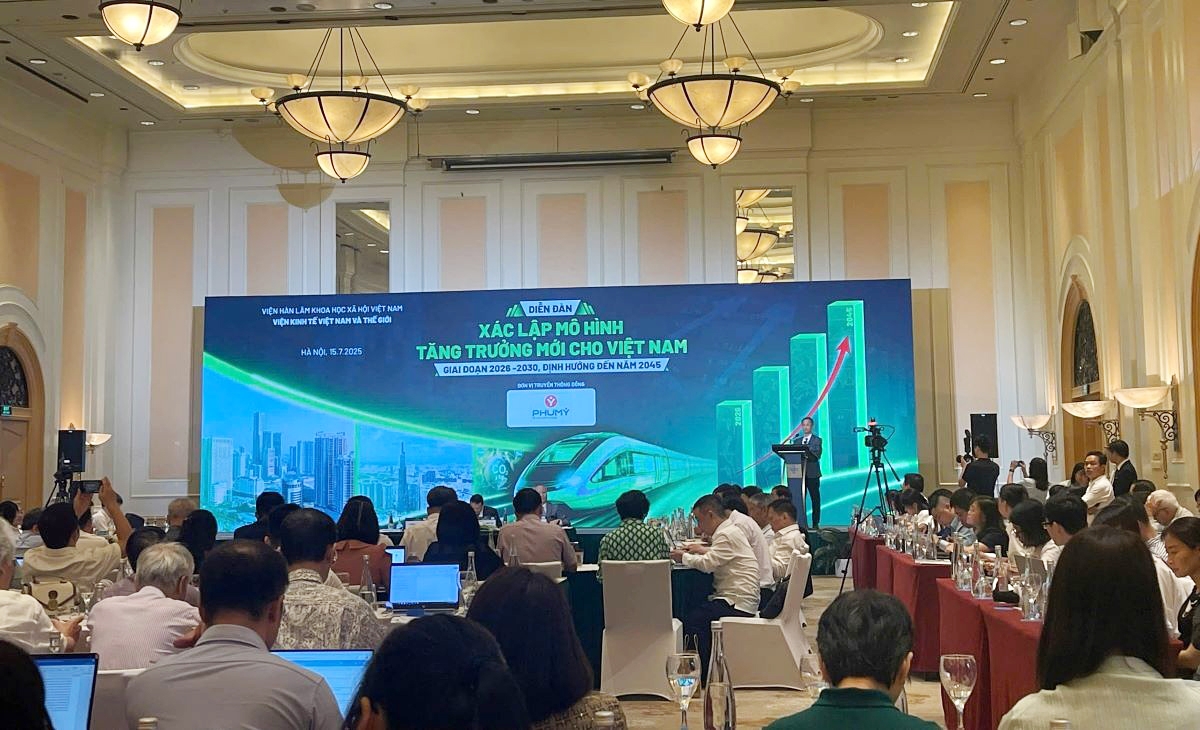Vietnam sets sights on a new growth model for 2026–2030, vision to 2045
VOV.VN - The Vietnam Institute of Economics under the Vietnam Academy of Social Sciences hosted a national forum on July 15 aiming to establish a new growth model for Vietnam for the 2026–2030 period, with vision to 2045.

More than 20 scholarly presentations from economists, scientists, policymakers, and business leaders examined theoretical and practical approaches to selecting a new growth model; and lessons from international experiences in shifting growth paradigms.
Delegates critically assessed existing constraints and bottlenecks in the country’s current economic growth model and provided evidence-based, breakthrough solutions for transforming Vietnam’s development trajectory.
In his opening remarks, Dr. Dang Xuan Thanh, vice president of the Vietnam Academy of Social Sciences, stressed the need for Vietnam’s growth model to evolve into a complex, multidimensional structure that integrates social, technological, environmental, and geopolitical considerations in today’s volatile world.
Dr. Thanh underscored several major global trends that are transforming the economic landscape. These include the growing influence of artificial intelligence and robotics as key drivers of value creation in a data-centric world; the urgent push for green transformation and carbon neutrality, spurred by EU carbon border taxes and rising ESG requirements; and the restructuring of global supply chains through strategies such as “China+1,” near-shoring, and friend-shoring which offer new opportunities but also demand stronger logistical, technological, and industrial capabilities from Vietnam.
He also emphasised the resurgence of economic nationalism and the intensifying geopolitical race for dominance in technology, data, and critical
Dr Thanh warned that unless Vietnam accelerates its structural transformation, it risks falling behind and being trapped in the lower rungs of global value chains, thus jeopardising its goal of becoming a developed nation by 2045.
The forum also served as a platform to concretize Resolution No. 57 of the Politburo, which outlines a strategic growth shift anchored in productivity, science and technology, innovation, digital transformation, and green economy as key pillars.
Successfully implementing this transition, participants agreed, will require strong political will, continuous institutional reform, and broad-based support from the business community and society at large.
Findings and policy recommendations from the forum will be compiled into a macroeconomic advisory report submitted to the Government and relevant competent agencies.





